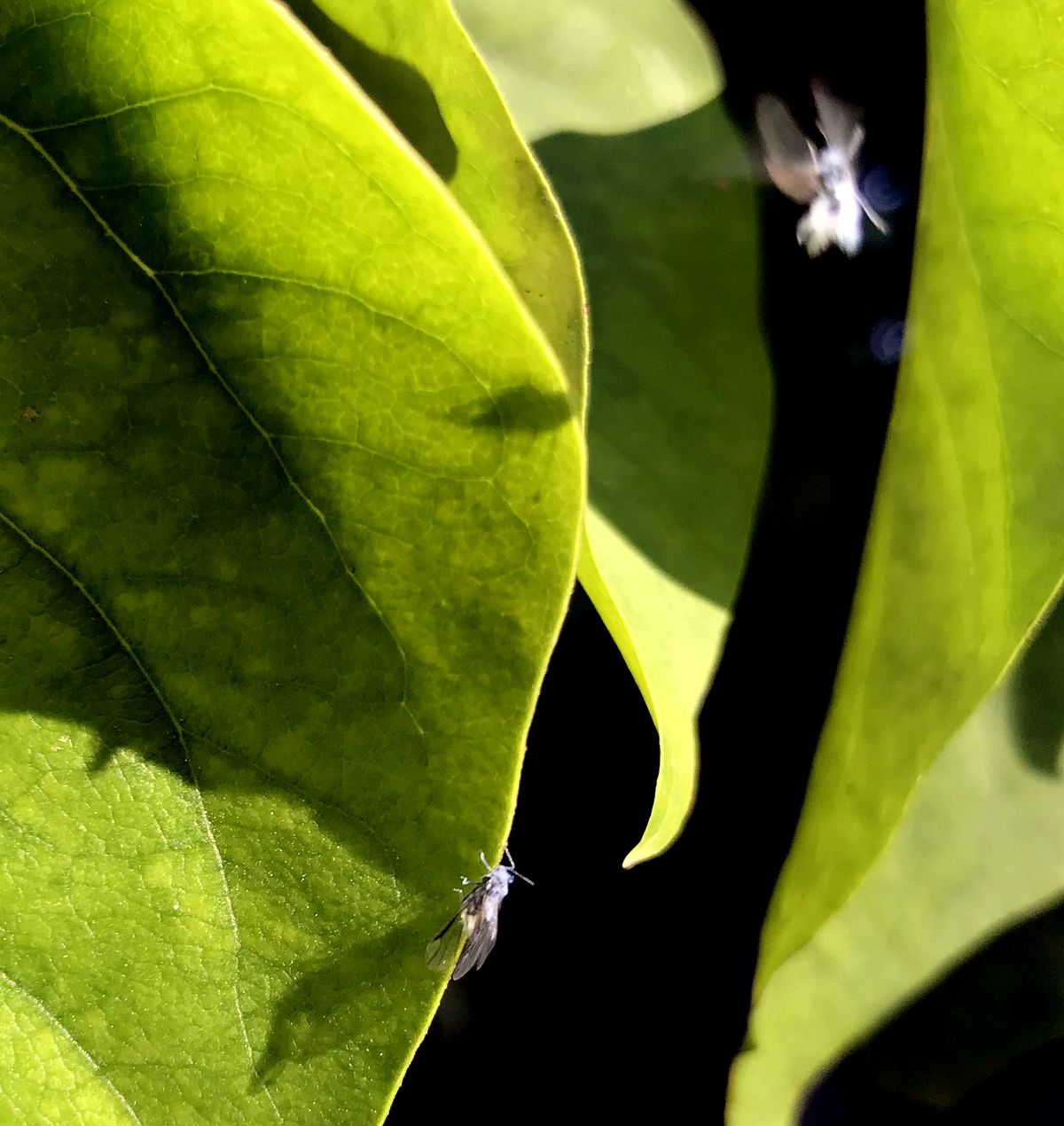Don’t worry, all those tiny white bugs swarming Spokane right now won’t hurt you

Did you wake up this week to swarms of tiny white dots floating in the air? Nope, it’s not snowing. It’s not pollen either.
Those dots are smoky-winged ash aphids – bugs – on their annual migration to a place they can lay their eggs.
Up close, they’re metallic blue with a fluffy white wax that appears woolly when they fly.
In the summer, these bugs live on the roots of fir and pine trees. In the warmer weeks of autumn, the females take their winged form in search of ash trees, their winter host. Most die before making it to an ash tree, but the ones that do lay their eggs before freezing temperatures kill them.
Watch a short film about aphids by photographer Brian Plonka
These aphids are one of the few that change hosts midyear, said Robert Orpet, Washington State University post-doctoral research associate in entomology. Orpet studies tree-fruit pest management, often caused by another aphid, the woolly apple kind.
Only 10% of aphid species host-switch, Orpet said.
“It’s an odd thing, really,” Orpet said. “I don’t know why they do it. Nobody really knows why they do it.”
Everything flying around right now will die when temperatures get cold, Orpet said. Only the eggs will survive. Once they hatch, the aphids will make the switch back to conifer trees sometime in the spring, but you probably won’t notice it, Orpet said. The aphids feed on the conifer trees but don’t harm them.
Expect the bugs to last until temperatures begin to drop, possibly through October, but you’ll probably only notice them in the late afternoon when it’s warmest.
They might land on you, stick to your windshield or get in your eyes. But don’t worry, they won’t hurt you or anything else.
“It’s really just an annoyance,” Orpet said.